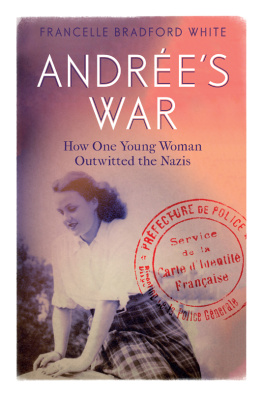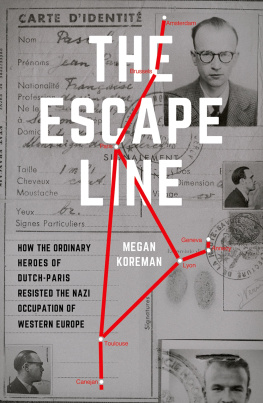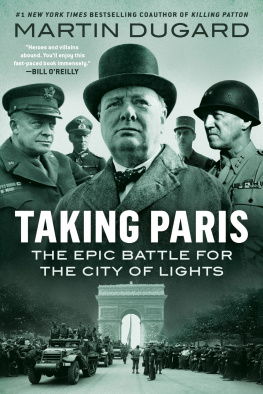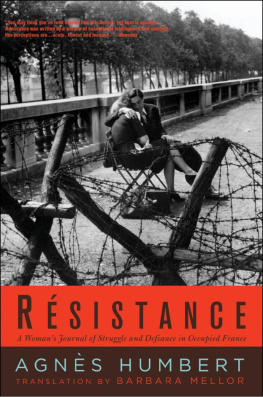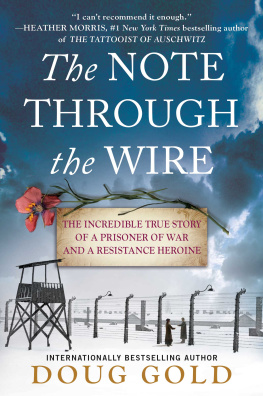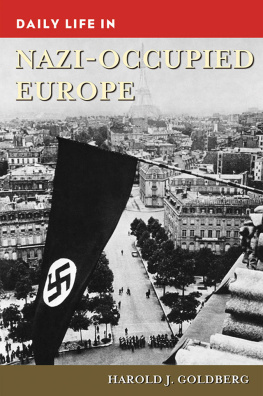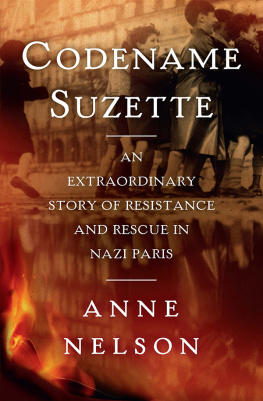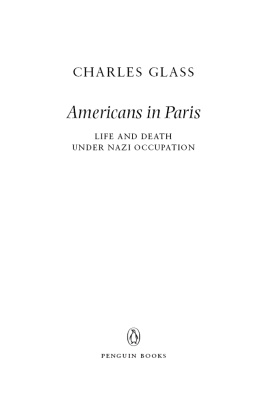ANDRES WAR
How One Young Woman
Outwitted the Nazis
FRANCELLE BRADFORD WHITE

First published 2014 by
Elliott and Thompson Limited
27 John Street
London WC1N 2BX
www.eandtbooks.com
Epub: 978-1-78396-025-8
MOBI: 978-1-78396-026-8
Copyright Francelle Bradford White 2014
Picture credits:
Endpapers: Pages taken from one of the diaries of Andre Griotteray, June 1940. Images in plate section reproduced courtesy of: (bottom) originally reproduced in Alain Gandy, La jeunesse et la Rsistance: rseau Orion, 19401944 (Presses de la Cit, 1992); all other images from the authors personal collection.
All rights reserved. No part of this publication may be reproduced, stored in or introduced into a retrieval system, or transmitted, in any form, or by any means (electronic, mechanical, photocopying, recording or otherwise) without the prior written permission of the publisher. Any person who does any unauthorised act in relation to this publication may be liable to criminal prosecution and civil claims for damages.
Every possible effort has been made to locate and credit copyright holders of material reproduced in this book. The author and publisher apologise for any omissions or errors, which can be corrected in future editions.
A catalogue record for this book is available from the British Library.
For Andre
A NOTE ON THE TEXT
The majority of the material in this book is drawn from a variety of sources, including Andres diaries and notebooks, a recorded interview from 1996, written sources such as memoirs and a history of the Orion Group, and other published works. Some is based on conversations the author had with her mother, Andre Griotteray, and with other members of Orion, including her uncle, Alain Griotteray. Occasionally, to fill an unavoidable gap in the narrative, the author has had to rely on supposition, supported by the evidence gleaned elsewhere.
Contents
Introduction
W hen my mother, Andre, began to show the initial signs of the disease generally known as Alzheimers, I was not sure how to cope with my emotions. At some stage in the past I had been told that when you are upset it can help to express your feelings on paper, so I decided to write about her. Andre has done many interesting, wonderful things throughout her lifetime but it was what she did during the Second World War that had always caught my imagination.
In 1945 Andre was given the Mdaille de la Rsistance. She was also awarded the Croix de guerre, with a citation personally made out in the name of le Gnral (Head of the Provisional French Government) an honour not given to all recipients. How could a woman who had shown such courage, intuition and energy (and who remained, into her seventies, so attractive, beautifully dressed and resourceful) fall prey to such a devastating and cruel disease? When she first became ill she was still at the helm of a family business with headquarters in London and subsidiaries in Paris and New York.
As my brother and I fought to cope with her prognosis, I filed my writing away and moved on to deal with the consequences of an illness we still know so little about.
In 2008, Andres brother and my uncle, Alain Griotteray, died aged eighty-five. In 2001 Alain had been made a Grand Officier de la Lgion dhonneur by the then president, Jacques Chirac an award held only by a limited number of Frenchmen and women at any one time. The address at his funeral, which was attended by several members of the French government, described Alains contribution to French politics during the twentieth century before focusing on his role, at eighteen years of age, as one of the youngest leaders of a French Resistance group. As we returned to London after the funeral, I thought to myself that their story deserved a wider audience. Much has been written in French about Alain and Andre and their Resistance colleagues, but I knew only too well that most of Andres six grandchildren and their descendants were unlikely to read anything about their grandmother unless it was in English. Besides, Andre herself loved Britain and the English language from a young age, as did her mother before her: the strong links that Yvonne established in England are still evident one hundred years later. Andre ultimately married an Englishman and raised her own family in England (always speaking English with them); it was right that her adoptive country should know a little more about her. Nine months later, I returned to Paris to begin to research the story you are about to read.
But where to start? I am not a writer nor a historian, let alone an academic. I began by walking the streets of Paris, following in Andres footsteps when she lived and worked there during the war. I took the mtro, the bus and cycled, as Andre did to her job at the Prfecture de Police (Police Headquarters), where she worked under the supervision of members of the Wehrmacht. I visited the police archives and discovered Les policiers franais sous lOccupation, a book by Professor Jean-Marc Berlire, who was, I believe, the first person to write in detail about the involvement of the Parisian police in the pogrom of approximately 13,000 Jews on 16/17 July 1942, and about which I knew very little. Jean-Marc had worked obstinately for several years to force the police and the Ministry of the Interior to open their archives. I visited the Muse Jean Moulin, the Muse des Invalides and the Jewish Museum; with my son I searched the archives of the Ministry of Defence at the Chteau de Vincennes to find the files held on the Orion Resistance Group, as Alain named his Resistance network. My story their story was beginning to take shape. I wrote down everything I could remember my mother telling me about what she did during the war. I spoke to relatives, including my uncle, Bernard Leclair. I had a long interview with Franois Clerc, deputy leader of the Orion Group and one of Alains closest friends (and who had known me since I was a baby), and I continued to walk, passing the landmarks Andre would have passed the Htel Meurice (headquarters of the military during the war); the Palais du Luxembourg, where the Luftwaffe were based; the Champs-lyses, down which the Wehrmacht marched every day for four years. These landmarks were all within a few minutes walk from where Andre and her entire family had lived. I thought about what had happened on the streets of Paris during those dark years and then, to cheer myself up, I imagined the city on the day of its liberation, which Andre had so often described and about which I was also able to talk with my eighty-seven-year-old friend, Jeanine Louveau.
My brother was vaguely aware of what I was doing and, on my return, he said, You had better have these. In a paper bag were ten journals written by Andre between 1934 and 1947. In them Andre had described her thoughts about the invasion and the occupation of Paris, along with a record of daily life, her work at Police Headquarters, her friends and boyfriends. There were also several little black notebooks containing notes of appointments, reservations, train times and destinations; these were a vital source of information about Andres travels around France on behalf of the Resistance, especially after the Normandy landings in June 1944 when she seemed to be constantly on the move. Despite the brevity of the information, it was surprising to find she had put so much on record, given the dangers implicit in doing so.
Much of the information in the diaries, by contrast, was written in code nothing that a professional code breaker could not have translated, but indicative that Andre was conscious of the need for caution. As the diaries went on, and especially after the landings, the entries became increasingly emotionally charged and harder to follow, with dates jumping around and entries appearing out of order. Some pages had been torn out. Andre was working extremely hard at this time, travelling frequently on a rail network that was being bombed regularly. She was under pressure to get the material she carried safely to its destination before travelling back to work in Paris, but the trains were hugely unreliable, not to mention dangerous.

